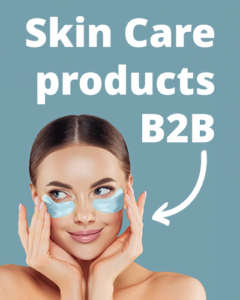Not everyone is blessed with normal skin, which doesn’t suffer from any noticeable problems and is relatively stable and unreactive. Many people have a skin type that demands specific treatment, and recognizing this can help keep your skin manageable. Keep reading to learn how to figure out your skin type and what you can do to keep it happy.
Dry Skin
Dry skin struggles to retain moisture, resulting in flakiness, rough texture, and irritation that may be visible under makeup. It often happens because of your environment. For example, dry climates can dry out skin, as can harsh products, including those in your environment. Washing frequently can also cause dry skin, which is why some people only experience dry skin on their hands.
Oily Skin
Oily skin happens when your skin overproduces sebum, an oil that is necessary but in smaller quantities. Oily skin often has a sheen, especially in the “T Zone”–the forehead, nose, and chin. Men have oilier skin than women on average, but it can impact anyone. Excess sebum can cause breakouts and make applying and keeping makeup on difficult; however, oily skin is less likely to form wrinkles.
Oily skin can be a symptom of another skin condition, such as rosacea, and it may happen because cleansers strip away too much of your natural oil, causing your skin to overreact.
Combination Skin
Combination skin, which is the most common skin type, is both oily and dry. You might have an oily nose and cheeks but a dry forehead, for example. Sometimes, people think combination skin means normal skin, but these issues do not cancel each other out. Rather, you have two problems that make treating your skin difficult.
Sensitive Skin
Sensitive skin is exactly as the name suggests! If you have sensitive skin, it might become itchy, inflamed, sore, or red frequently as it reacts to your environment. Unfortunately, your skin can react to multiple environmental factors, including:
- Fragrances
- Facial products (cleansers, toners, moisturizers, and serums)
- Makeup
- Cleaning products (especially laundry detergent)
- Pollen
- Bacteria
- Weather (extreme hot or cold, sun exposure, wind)
- Medications
- Diet
- Pollution
- Medical conditions (kidney or liver disease, HIV, MS)
You could be sensitive to multiple irritants, and you may never discover what your skin is reacting to. To complicate matters, no two people have the same sensitive skin, so products that work for someone else might not work for you.
Dry, oily, or combination skin can also be sensitive, which can make finding the right products hard. For example, products that are good at stripping oils might irritate your already sensitive skin. You might benefit most from reducing sensitivity before focusing on other skin concerns.
How to Treat Your Skin Type
No matter your skin type, the foundation of skincare is cleansing, moisturizing, and SPF. However, the specific products you choose will differ.
- Normal skin is usually fine with anything aimed at this skin type. You shouldn’t experience issues with gentle exfoliators or toners. You might want to focus on preventing future skin problems with vitamin C, which brightens skin, or retinoids, which can help with lines, wrinkles, texture, and hyperpigmentation. Alpha hydroxy acids (AHAs), such as glycolic acid, are also compatible with this skin type.
- Dry skin needs more moisture, so choose a gentle cleanser and a heavier cream moisturizer containing products such as oils, ceramides, and hyaluronic acid. Avoid over-washing and products with alcohol, witch hazel, essential oils, or sulfates. Consider using a humidifier at home if it’s dry.
- Oily skin responds better to mattifying products and lighter moisturizers and SPF, such as gels or liquids. Salicylic, glycolic, or lactic acids can be helpful, and you may benefit from a toner or astringent to minimize oil. Consider powder makeup to reduce the shin.
- Combination skin may require multiple products to achieve balance.
- Sensitive skin requires gentle cleansers, moisturizers, and protection from the elements. Look for products with soothing ingredients such as chamomile, aloe vera, green tea, or hyaluronic acid. Avoid scrubs and astringents.
Remember that your skin type can change for several reasons, including your menstrual cycle, weather, pregnancy, and aging. For example, if you live in a drier climate, you might experience dry skin in the winter, while your skin may become oily in summer. If this is true, switch to a heavier moisturizer in winter and a lighter one in summer.
Of course, your skin type can remain relatively constant, but you might find yourself frustrated if you miss a change in your skin and your current products no longer serve you well. However, paying attention to your skin and giving it the TLC it needs can minimize problems and promote health!








